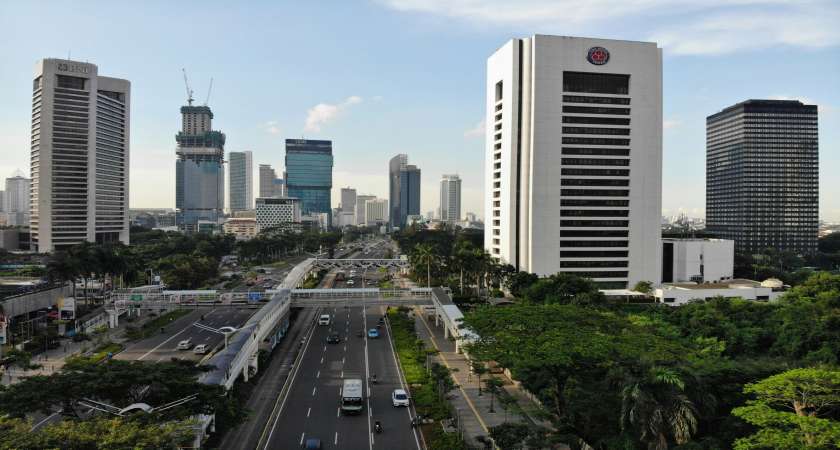Antitrust Law in Indonesia: General Legal Overview on Prohibited Pricing Mechanisms

Antitrust is governed under Law No. 5 of 1999 concerning Prohibition of Monopolistic Practices and Unfair Competition ("Competition Law”), and Presidential Decree No. 75/1999 establishing the Business Competition Supervisory Commission (Komisi Pengawas Persaingan Usaha or “KPPU”), which is authorized to investigate and impose sanctions on Indonesian entities practicing monopolies or unfair business activities, as well as implement various guidance and regulations issued by KPPU. The regulatory framework on antitrust is stipulated to promote fair business competition involving large and small business players.
Pricing mechanism is one of the matters regulated under the Competition Law. In this regard, the law provides a guideline on prohibited pricing mechanisms, which would promote unfair competition practices. Such mechanisms include (i) Price Fixing; (ii) Resale Price Maintenance ("RPM”); and (iii) Predatory Pricing (together, the “Prohibited Pricing Mechanisms”).
In this article, we provide a general overview summarizing the Prohibited Pricing Mechanisms under the Competition Law, addressing the following matters: (i) General Overview on Antitrust in Indonesia; (ii) Prohibited Pricing Mechanisms; (iii) Sanctions; and (iv) Concluding Remarks.
General Overview on Antitrust Rules in Indonesia
Under the Competition Law, businesses are generally prohibited from engaging in unfair business practices. In determining the unfairness, KPPU utilizes the rulings of Per Se Illegal and Rule of Reason. Please be informed that the Competition Law enacts the wordings “….it is prohibited” regarding unfair business practices. This choice of words addresses certain agreements or business activities considered illegal, without requiring further proof on the impacts of the agreements or business activities (or referred to as “Per Se Illegal”).
As a result of the applicability of Per Se Illegal, KPPU implements the “rule of reason” principle in investigating possible monopolies and/or unfair business practices ("Rule of Reason”). The Rule of Reason allows interpretation of the law by considering the competitive factors and feasibility of trade barriers.
Prohibited Pricing Mechanisms and Its Imposition
As a reference, the Competition Law defines the Prohibited Pricing Mechanisms as:
- RPM: According to Article 8 of the Competition Law and KPPU Regulation No. 8 of 2011, RPM is an attempt by the principal business actor to control the resale price of certain products to the end customers. In this regard, Article 8 of the Competition Law stipulates that a business actor is prohibited from including a provision that prohibits its counterparts from reselling goods and/or services at a value lower than the agreed amount.
- Price Fixing: Based on Article 5 of the Competition Law and KPPU Regulation No. 4 of 2011, price fixing is defined as an agreement between business players and their competitors to determine the price of certain goods and/or services.
- Predatory Pricing: According to Article 20 of the Competition Law and KPPU Regulation No. 6 of 2011, predatory pricing means selling goods and/or services at unreasonably low prices, or selling them at a loss for the purpose of creating a market entry barrier against the competitors, or creating a market barrier preventing other business actors from entering the market.
In general, the Prohibited Pricing Mechanisms shall be evaluated through the fulfillment of three elements of the Rule of Reason (i.e., whether the relevant business has violated any rule of prohibited pricing mechanisms):
- Inclusion of prohibited pricing mechanism clauses in the relevant agreement: This is to establish tangible evidence for KPPU in proofing violations of Prohibited Pricing Mechanisms.
- Dominant position of the business actor: Business players, with special attention to large business players that are prone to be in a dominant position in the market, are prohibited from conducting monopolistic or unfair business practices. Under Article 25 paragraph (2) of the Competition Law, a business entity is considered in a dominant position if: (i) the business actor or a group of business actors owns 50% (fifty percent) or more of certain goods and/or services’ market; or (ii) two or three separate business actors, or a group of business actors, own 75% (seventy five percent) or more of certain goods and/or services’ market.
- Inclusion of such pricing mechanism would negatively affect business competition: While it is generally permissible to be in a dominant position, a misuse of a dominant position is prohibited under the Competition Law. Such misuse is evidenced when the business actor uses its dominant position to prevent its competitors from accessing the consumers, and/or provide barriers against its competitors, limiting their market and technology development, and hindering other business actors from potentially becoming the competitors.
Sanctions
Upon investigation and determination that the relevant business entity has violated the Competition Law regarding Prohibited Pricing Mechanisms, KPPU may impose the following sanctions on the violators:
Administrative sanctions:
- Termination of prohibited agreements;
- Issuance of order on termination of the relevant prohibited activities;
- Issuance of decree on compensation of losses due to violation of the Competition Law; and/or
- Imposition of fine of between IDR 1 billion and IDR 25 billion.
Criminal sanctions:
- A violator of RPM and price fixing may have to pay a fine of between IDR 25 billion and IDR 100 billion, or serve six-month imprisonment;
- A violator of RPM, price fixing, and predatory pricing may have to pay a fine of IDR 25 billion, or serve five-month imprisonment;
- Additional criminal sanctions ranging from revocation of business license to suspension of business activities can be imposed on the relevant entity, while members of the Board of Directors (BOD) and Board of Commissioners (BOC) are prohibited from holding positions as directors or commissioners for two to five years.
Concluding Remarks
With stipulation of Per Se Illegal and Rule of Reason, KPPU determines unfair competition or monopoly practices on case-to-case basis, to provide a more argumentative and in-depth investigation in factoring the balance between the market entry and unfair competition practices.
The article above was prepared by Marshall S. Situmorang (Partner) and Audria Putri (Senior Associate).









